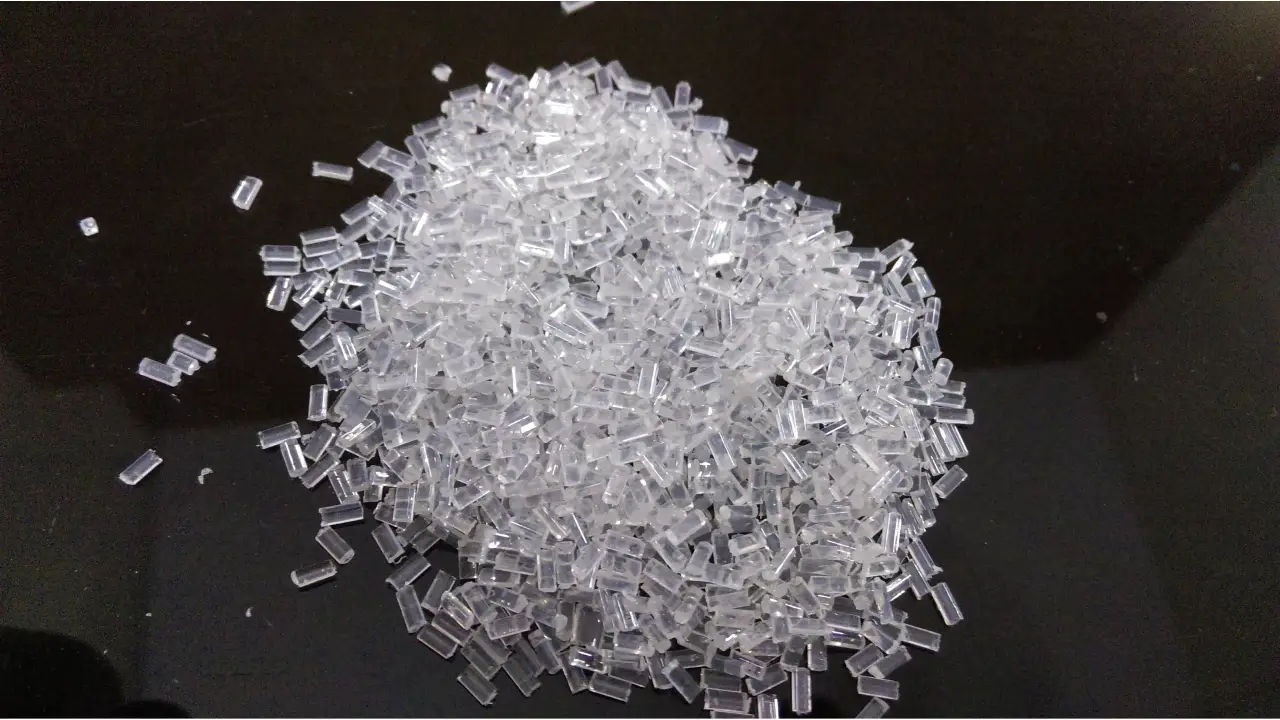Supplier of General Purpose Polystyrene (GPPS) from Turkey and Dubai UAE

General Purpose Polystyrene (GPPS) Overview
As a trusted General Purpose Polystyrene supplier, we supply high-quality General Purpose Polystyrene (GPPS) granules to manufacturers seeking superior transparency, rigidity, and cost-effective performance. General Purpose Polystyrene is widely used in packaging, electronics, consumer goods, medical, and construction industries, where consistent quality and reliable processing are essential.
By sourcing General Purpose Polystyrene from an experienced international supplier, manufacturers benefit from stable material properties, global standards compliance, and dependable export logistics.
What is General Purpose Polystyrene (GPPS)?
General Purpose Polystyrene (GPPS), also known as crystal polystyrene, is a transparent, rigid, and lightweight thermoplastic polymer derived from styrene monomers. GPPS is renowned for:
-
Brilliant Optical Clarity: Ideal for applications requiring product visibility, such as food packaging and display cases.
-
High Rigidity: Maintains dimensional stability and structural strength, suitable for electronics housings and household items.
-
Ease of Processing: Compatible with injection molding, extrusion, and thermoforming, reducing production time.
-
Cost Efficiency: Lightweight material reduces raw material use, energy consumption, and shipping costs.
High-purity GPPS granules supplied by a professional GPPS supplier meet international standards, ensuring superior performance in all manufacturing applications.
Key Properties and Advantages of GPPS
-
-
Crystal-clear transparency with high surface gloss
-
High stiffness and dimensional accuracy
-
Low density for efficient shipping and handling
-
Easy coloring and excellent mold release
-
Good electrical insulation properties
-
Food-contact and medical suitability (grade-dependent)
These advantages make General Purpose Polystyrene an economical and reliable solution for high-volume manufacturing.
-
Available Grades of General Purpose Polystyrene (GPPS)
A professional General Purpose Polystyrene supplier offers multiple GPPS grades designed to meet different processing and performance requirements:
-
High Clarity GPPS Grade
Used for food packaging, laboratory ware, cosmetic containers, and lighting covers. -
High Flow GPPS Grade
Designed for thin-wall injection molding, fast cycle times, and complex geometries in packaging and electronics. -
Standard Injection Grade
Balanced mechanical strength and surface finish for household goods and office products. -
UV-Stabilized GPPS Grade
Enhanced resistance to discoloration and brittleness for signage and decorative construction elements.
Selecting the correct General Purpose Polystyrene grade ensures optimal processing efficiency and long-term product quality.
Applications of GPPS Granules
GPPS granules are versatile and critical across industries:
1. Packaging Industry
-
Food Packaging: Transparent containers, clamshells, trays, cups, and lids maintain product visibility and hygiene.
-
Consumer Electronics Packaging: Protects delicate components during shipping while providing visual clarity.
-
Medical & Laboratory Packaging: Ensures sterility and clear visibility of instruments and samples.
2. Electronics & Electrical Components
-
Housings: Durable shells for TVs, monitors, printers, and small appliances.
-
Insulators & Components: Offers electrical insulation and dimensional stability for sensitive electronic parts.
3. Consumer Goods
-
Toys & Household Items: Lightweight, rigid, and visually appealing for children’s toys, hangers, and storage containers.
-
Cosmetic & Personal Care Packaging: Bottles, jars, and display cases that highlight product aesthetics.
4. Construction & Decorative Applications
-
Insulation Panels: Lightweight thermal panels for energy-efficient buildings.
-
Decorative Elements: Molded trims, wall panels, and signage that maintain shape and durability.
5. Medical & Laboratory Applications
-
Labware: Petri dishes, test tubes, and trays requiring chemical resistance, clarity, and sterility.
-
Pharmaceutical Packaging: Containers for tablets, capsules, and powders that ensure protection and visibility.
6. Industrial Components
-
Mechanical Parts: Lightweight, rigid components for machinery and equipment.
-
Prototyping & Models: Easy to mold for rapid prototyping and industrial design models.
By choosing high-quality GPPS granules, manufacturers achieve precision, clarity, and durability across all applications.
Handling and Storage of GPPS
Proper handling and storage are essential to maintain GPPS quality:
-
Storage Conditions: Keep granules in dry, ventilated warehouses away from direct sunlight and moisture.
-
Temperature Control: Store at moderate temperatures to prevent warping or degradation.
-
Handling: Use clean equipment to avoid contamination; avoid mixing with other polymers.
-
Dust Control: Minimize dust generation during transport or handling to ensure safety and product integrity.
Packing and Container Loading Details
Packing Options
-
25 kg moisture-proof bags
-
50 kg industrial bags
-
500–1000 kg jumbo bags (FIBC) for bulk supply
Container Loading Capacity
-
20-foot container: Approx. 20–22 metric tons
-
40-foot container: Approx. 25–28 metric tons
Proper palletization and moisture protection ensure safe international shipment of General Purpose Polystyrene.
Safety Tips
While GPPS is generally safe, proper precautions ensure workplace safety:
-
Personal Protection: Wear gloves, masks, and safety glasses when handling granules to avoid inhalation of dust.
-
Fire Safety: GPPS is flammable; keep away from open flames and heat sources.
-
Ventilation: Ensure well-ventilated areas during cutting, molding, or thermoforming.
-
Waste Management: Collect and dispose of off-cuts and dust according to local environmental regulations.

